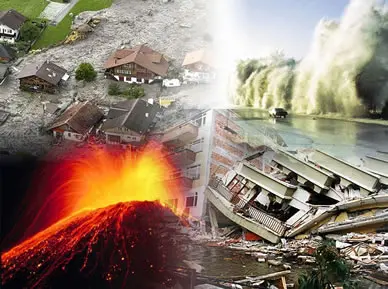Community Emergency Response Teams (CERT)
The Community Emergency Response Team (CERT) Program educates people about disaster preparedness for hazards that may impact their area and trains them in basic disaster response skills, such as fire safety, light search and rescue, team organization, and disaster medical operations. Using the training learned in the classroom and during exercises, CERT members can assist others in their neighborhood or workplace following an event when professional responders are not immediately available to help. CERT members are also encouraged to support emergency response agencies by taking a more active role in emergency preparedness projects in their community. For more information about CERT, visit FEMA.gov.
For more information about local opportunities:
Paula Towne (State of WA CERT Program Coordinator)
(360) 725-5290 paula.towne@ofm.wa.gov
or
Willie Bence (Director of Jefferson County Emergency Management)
(360) 316-6008 wbence@co.jefferson.wa.us
Student Emergency Response Team Training
Teen CERT members learn readiness and response skills to better identify hazards in their area, help others in the event of a disaster and become leaders in their school.
For more information, go to FEMA’s Teen CERT Program and resources page.
Jefferson County Emergency Operations Center
Established in 1988, the Jefferson County Department of Emergency Management (DEM) coordinates available resources to be mobilized in times of disaster, develops plans and procedures in response to and recovery from disasters and educates the public and business community about preparedness. Mutual Aid agreements are in place with local agencies which provides for additional resource sharing should the need arise. The DEM is equipped with electronic features well-suited to a rural county geographically isolated from the large metropolitan areas of Seattle and Tacoma.
Through a grant from the Department of Homeland Security, Jefferson County has an excellent redundant system for communication, backed up with generators in case of power failures as well as alternate communications in the event of phone outages. Amateur radio operators are set up with local American Radio Emergency System/Radio Amateur Civil Engineering System, (ARES/RACES) volunteers to communicate with over 100 members of the Neighborhood Preparedness groups.
The EOC is fully operational with a compliment of paid and volunteer staff trained to implement the Incident Command System (ICS). This system is best described as a management system of procedures for controlling personnel, facilities, equipment and communications from different agencies to work together towards a common goal in an effective and efficient manner. It is an “all hazards – all risk” approach to managing crisis response operations for emergencies of all sizes, as well as non-crisis events.
During a disaster, the EOC acts as the hub of the wheel comprised of the many and varied communities within Jefferson County. The EOC, in conjunction with local agencies as well as state and federal agencies, coordinates the recovery efforts for the impacted areas.
Considering the geography, geology and demographics of Jefferson County together with the frequency of winter storms that leave residents without electricity and other necessities, it is important that every individual and household prepare in advance for any eventuality.
Having supplies that include enough water, food, first aid supplies, to meet the particular needs of each family member for up to 30 days should be the goal for all residents. Buying one or two extra items every time you go to the grocery store is a good way to becoming well prepared. Two for the price of one items and coupons will help defray the costs.
Additional supplies should include flashlights, extra batteries, non-electric can opener, battery operated radio, toilet paper, and liquid soap. A complete list of appropriate items to include in a go-kit or emergency pantry can be found in the Jefferson County Emergency Management’s THINK, PLAN, DO, REPEAT book available at bit.ly/thinkplando.
The EOC Section Chiefs and Command Staff meet weekly to fine tune their coordinated efforts to run a smooth operation if and when they are called into action.
Individuals or groups who want to develop preparedness tactics for their specific neighborhoods should call (360) 385-9368 for materials and details.

